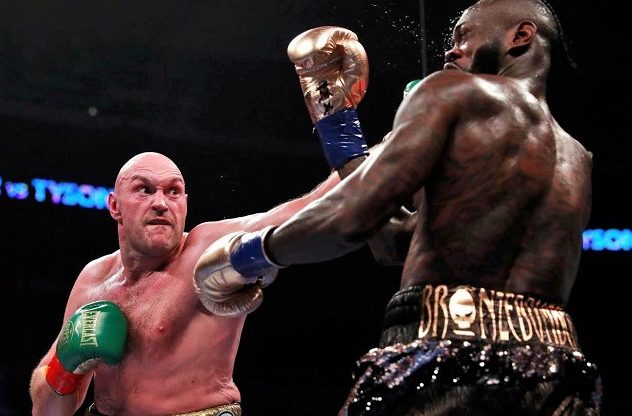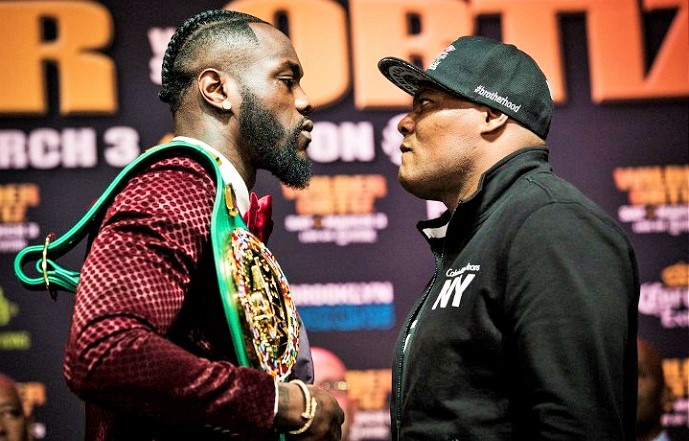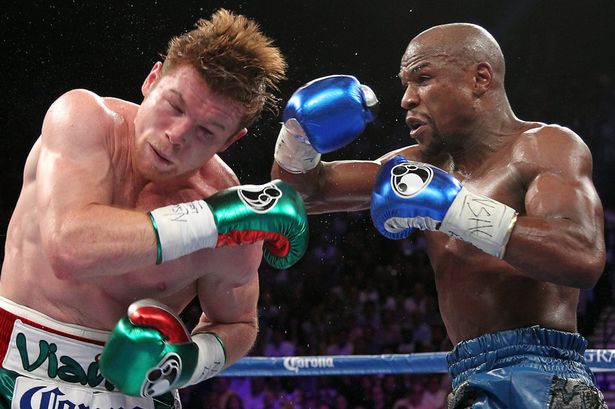Fury Only Played The Fool: Wilder vs Fury I
It went down on this day back in 2018, Wilder vs Fury, the first in a memorable trilogy, and not long after the smoke cleared from the dramatic battle, our own Ralph M. Semien penned not just a recap, but also an eloquent mea culpa. Ralph had taken a hard line against Fury, but looking back, he was hardly alone. With “The Gypsy King” scoring stoppage wins in both the rematch and the trilogy fight, it’s easy to forget that he was an underdog the first time around. Herewith, Ralph’s excellent take on that first memorable clash. Check it out:
Sorry it’s taken a while to write this column, but it requires time to eat crow. It’s chewy, doesn’t taste good at all, hard to get down. But I’m eating it and so here is the truth: Tyson Fury played the fool and I totally got played by “The Gypsy King.” I’m sure the multitudes in Vegas who bet Wilder felt the same way when they heard that final bell.
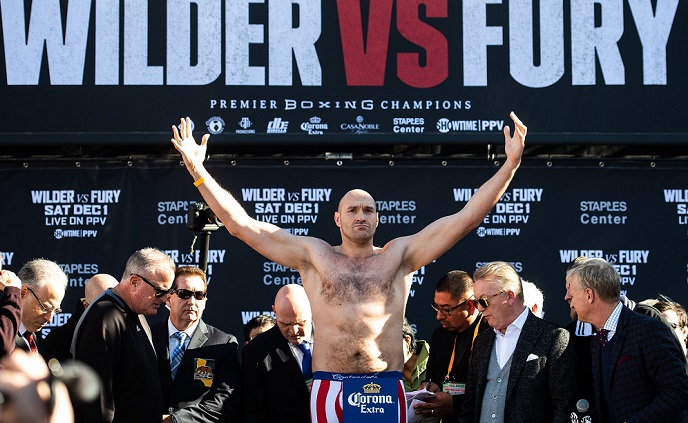
I had to watch the Showtime replay just to fully realize how badly I’d been played and how great a boxer Tyson Fury is when he’s sober and almost in top condition. There should be no controversy of the delusional variety that Wilder partisans like Bernard Hopkins came up with, utter nonsense that Wilder had somehow won that fight. Notwithstanding the two knockdowns, anyone with eyes to see couldn’t have given Fury fewer than nine rounds. Clearly, two of the three judges were watching some other prizefight.
In a righteous world of truth, something we here in the U.S. are sorely in need of, Tyson Fury would have won a unanimous decision. He earned it. He deserved it. He showed up every boxing pundit who picked against him, including this one, and in style.
I cannot emphasize enough, that in the pre-fight run-up, Fury threw down some major psych warfare on Wilder, acting a fool, but he was merely playing the fool. I have to call it as I see it and in only his second championship match Fury executed a winning strategy with cunning tactics, both on defense and offense. The truth is simple and obvious: Fury climbed in that ring with a game plan and for ten rounds he executed it almost flawlessly, and when the going got rough, he didn’t fold but instead, with a heart as big as a wheel, he got up from both knockdowns to stand his ground. Tyson Fury won that fight.
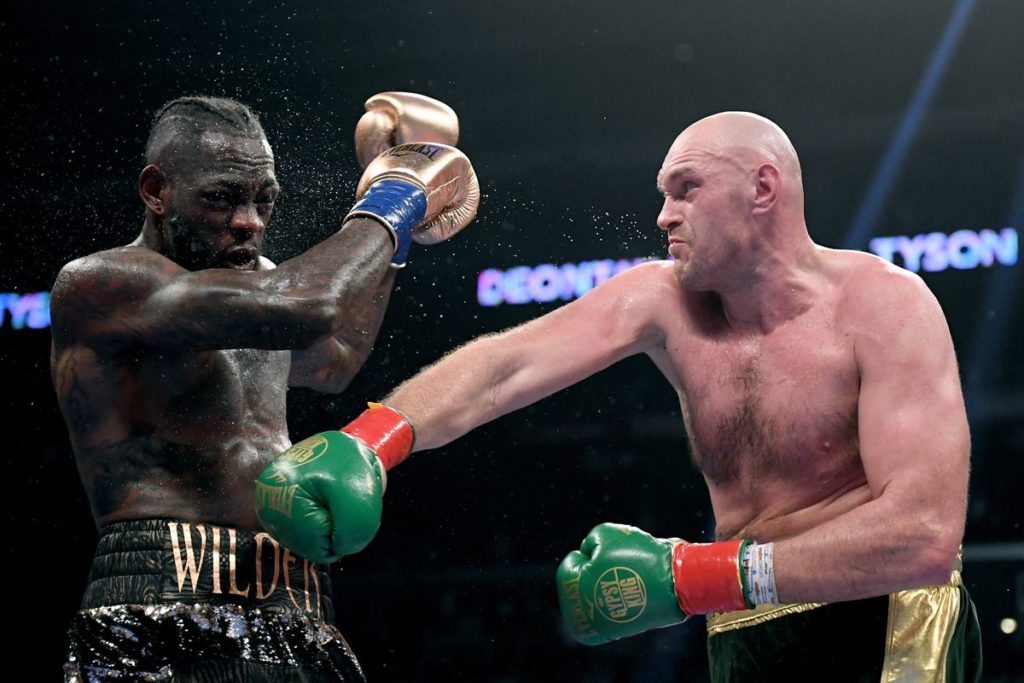
So, that said, I take keyboard in hand to correct the record and retract the words I wrote for this website in my column back in August entitled “Fury vs Wilder: Money Changes Everything,” in which I opined that Fury was far from ready for the likes of Wilder, that he was taking this fight only for money. Just how wrong I was and how right Fury was reminds me of when Cassius Clay challenged Sonny Liston for the heavyweight crown. With unwavering faith in himself, the man who would soon be known as Muhammad Ali never doubted that he had the skill and the boxing smarts to win, when every sports pundit in America said the brash fool would be smashed to bits by an unbeatable Sonny Liston. As they say, “the rest is history.”
Of course, I’m not the only one Fury fooled. Fully 14 out of 19 experts here at The Fight City called it for Wilder, while closer to my home L.A. Times writer Dylan Hernandez opined under a headline which was a slight to both men, “Just Lightweights On The Talent Side,” followed by a second slight, “They’re heavyweight, but not great,” in the subheading. Well, one of the two was “great” and Hernandez got fooled too.
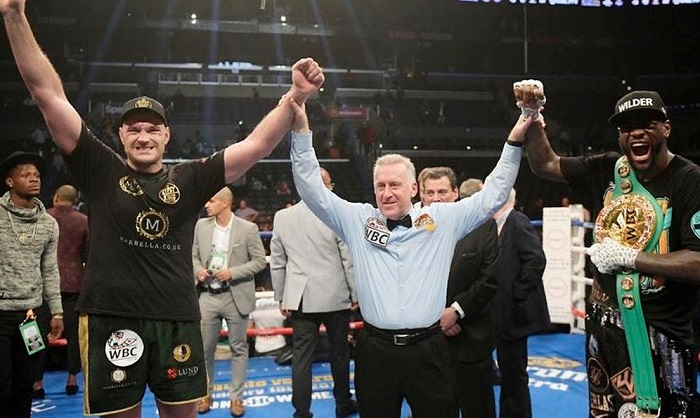
On who was fooled where it mattered most, best ask Deontay Wilder himself whether he got played. From the opening bell, you could tell he was thinking all he had to do was drop that big right on Fury, like he had done to 39 other men, and that would be all she wrote. It is said life is full of rude awakenings, and we’ve all heard that boxing analogy of taking the opponent into deep water and drowning him. Well, in this surprisingly entertaining fight, Deontay found himself in the deep waters of being far behind on points, followed by the rude awakening of Fury getting up from his best shots in round twelve. No doubt it took a toll on Wilder, shook him to the core. But give him credit: he dug deep and saved his title by the slimmest of margins with that under-the-wire knockdown.
With some fighters, outrageous pre-fight bravado conceals a fear of losing, like Jose Benavidez’s on-stage shoving of Terence Crawford the day before their fight. Benavidez had relentlessly called Crawford out until he finally got a showdown with “Bud,” and it spilled over at the weigh-in, with Benavidez shoving Crawford, who then swung on Benavidez but missed. That was Benavidez’ acting out his fear of Bud Crawford and rightly so.
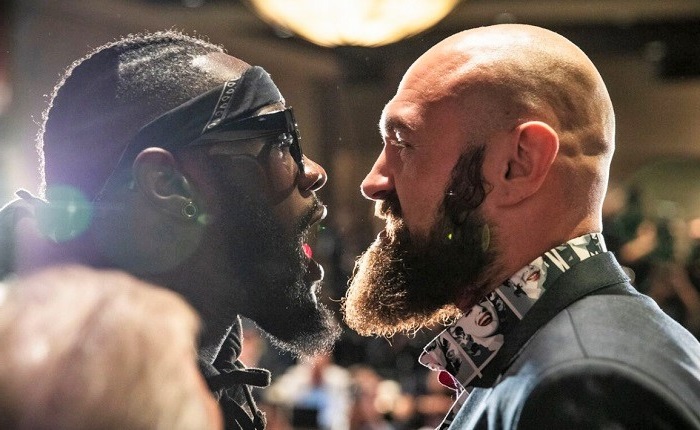
But looking back, Fury’s taunting and trash talk was taken straight from the Muhammad Ali playbook. With the exception of maybe the first Liston fight, Ali never was fearful when he did his shtick; he was always trying to get into the other guy’s head. In all those staged face-off extravaganzas that were more befitting of WWE wrestling than boxing, Fury was getting an extra edge, getting into Wilder’s mind. He even bragged to the media that he “was camped out in Wilder’s head rent-free.” The psychological dynamic gave Fury confidence while it gave Wilder pause.
Then there was the question of conditioning. I had stated that, based on the evidence of his two comeback fights, Fury was just not physically ready to take on a power-puncher like Deontay Wilder. Wrong! If he was a little overweight at 256, in fact it looked just about right for a man of his size and body mass. The reality on fight night was that if he wasn’t in peak condition, he was in condition enough to do what he needed to do. And let’s face it: if he wasn’t in fighting shape he never could have climbed off the floor in rounds nine and twelve after taking some of Wilder’s best shots.
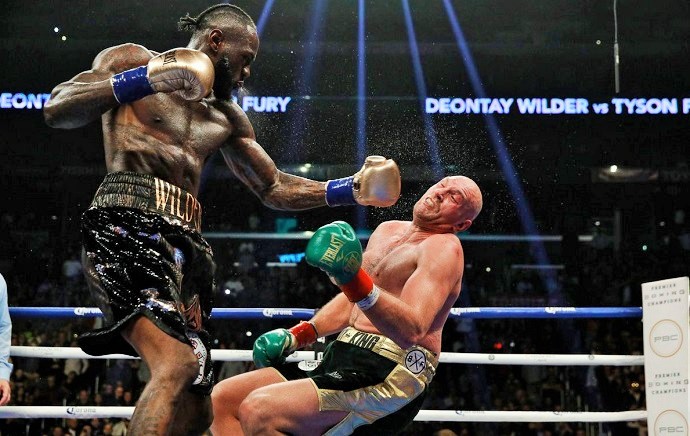
As to strategy, there was an interesting development late with pre-fight coverage reporting that Freddie Roach had detected a technical flaw in Wilder’s game which would be exploited by Fury. I suspect Roach “discovered” the obvious, something Showtime commentator Paulie Malinaggi called “the hitch,” namely the way Wilder telegraphs when he’s going to throw the big right. Stepping forward behind a range-finder jab, Wilder would lunge with his feet too close together as he launched the right hand, throwing himself off balance and leaving himself open to a counter right.
Clearly, Fury was dialed in defensively and he read those “I’m throwing the big right, baby!” telegrams all night long, before either stepping out of range or ducking and moving his torso forward, just like he did against Klitchsko, making Wilder hit air in the spot where Fury’s head had vacated. The numbers on this don’t lie. Wilder went in with a 54 percent power-punch connect ratio and by the seventh round Fury had reduced that to a paltry fourteen percent!
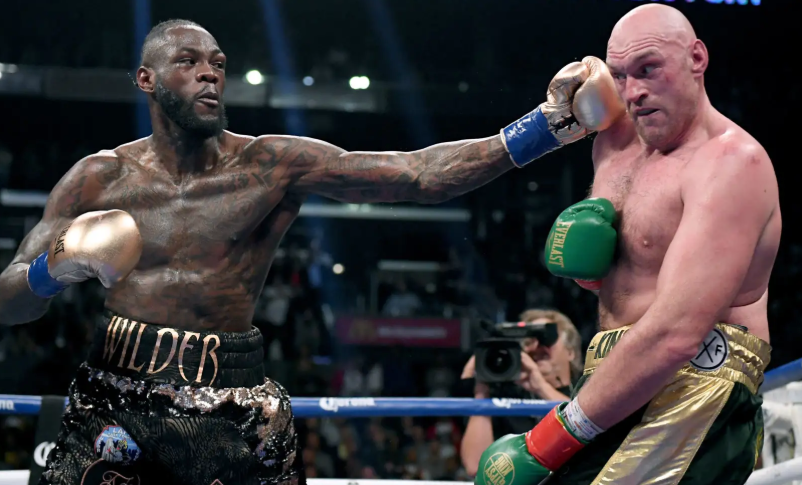
My old friend from Detroit, Kronk Gym’s Billy Miller, who helped train Tommy Hearns among others, schooled me that in the ring you got to have a back-up plan if the basic strategy isn’t working and that’s exactly what Floyd Mayweather said when he was interviewed between the fifth and sixth rounds on Showtime. He pointed out that if Wilder didn’t come up with something other than relying on the big right, then he was going to lose. And as the rounds went by, and as Fury repeatedly slipped Wilder’s right hand, or otherwise stifled it, this proved to be the case.
That said, on rare occasions Wilder did land the right, but Fury turned it into a glancing blow or otherwise muffled it, so that, excepting in rounds nine and twelve, Wilder’s right was pretty much of no force and effect. I recall Muhammad Ali saying that when a power puncher lands his best shot and nothing happens, it takes something out of them, makes them doubt themselves. In round nine Wilder connected with the big shot and Fury went down, but then he got up and in round ten Tyson was the one imposing his will and letting his hands go.
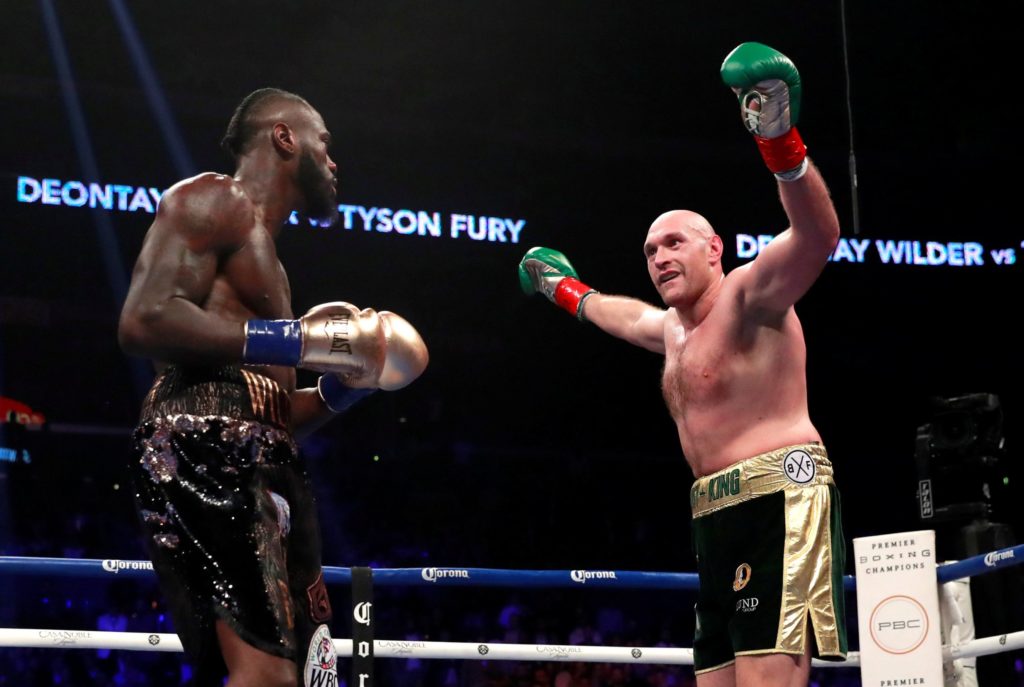
Wilder has proven with other fighters, like Luis Ortiz, that he has a good beard, and to my surprise he needed it against Fury. The Briton rocked Deontay with punches Wilder didn’t see coming and by the last round his face on the left side was puffed up. Those big punches coming off Fury’s vicious jab had nearly closed Wilder’s left eye by fight’s end and that jab was not a pawing jab, but an Ali-like jab, meant to do damage.
In other words, Fury “flipped the script” on Deontay Wilder as “The Bronze Bomber” went from being the hunter to being hunted. And the man just had no back-up plan to deal with it. Instead it was total desperation for Wilder in round twelve as, totally gassed, he finally managed to break through and land two huge, flush shots that put Fury down hard. Wilder thought he had won the fight, as he broke into the Hully-Gully, dancing in premature celebration. But, to everyone’s amazement, Fury not only beat the count but then fought back as an exhausted Wilder held on for dear life and “The Gypsy King” landed some solid shots to end the battle.
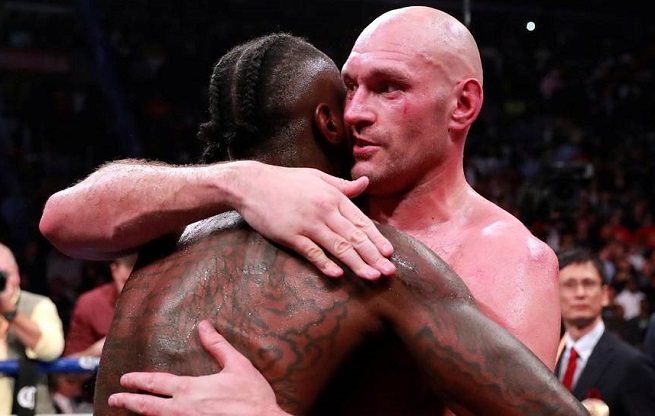
Post-fight, both argued they are the two best heavyweights on the planet, though each professed they had won the fight. But I question whether Wilder really believes, in his heart-of-hearts, that he in fact deserved to be victorious. That long embrace in the ring by Wilder said otherwise and I wonder what Deontay may have whispered to Fury at that moment. It reminded me of what Joe Frazier said about Muhammad Ali to writer Mark Kram immediately after The Thrilla in Manila: “Man, I hit him with punches that’d bring down the walls of a city,” said Frazier. “Lawdy, Lawdy, he’s a great champion.” In my opinion, that long embrace Wilder initiated said exactly the same thing.
And, since I’m eating crow, I now have to echo the same sentiments. Lawdy, Lawdy, I did not see that kind of performance coming from Tyson Fury after such a long period of inactivity and looking like he did against the likes of Sefer Seferi and Francesco Pianeta. I said before the fight that Fury was taking it just for the money. And I said Deontay Wilder would win. How wrong I was. Now I say, “Bring on the rematch!” Anthony Joshua can sit down and wait. — Ralph M. Semien

